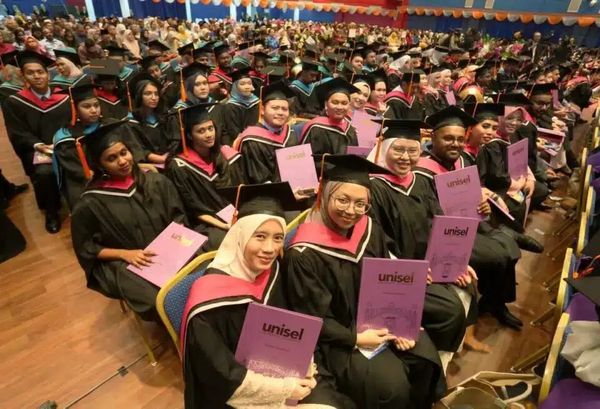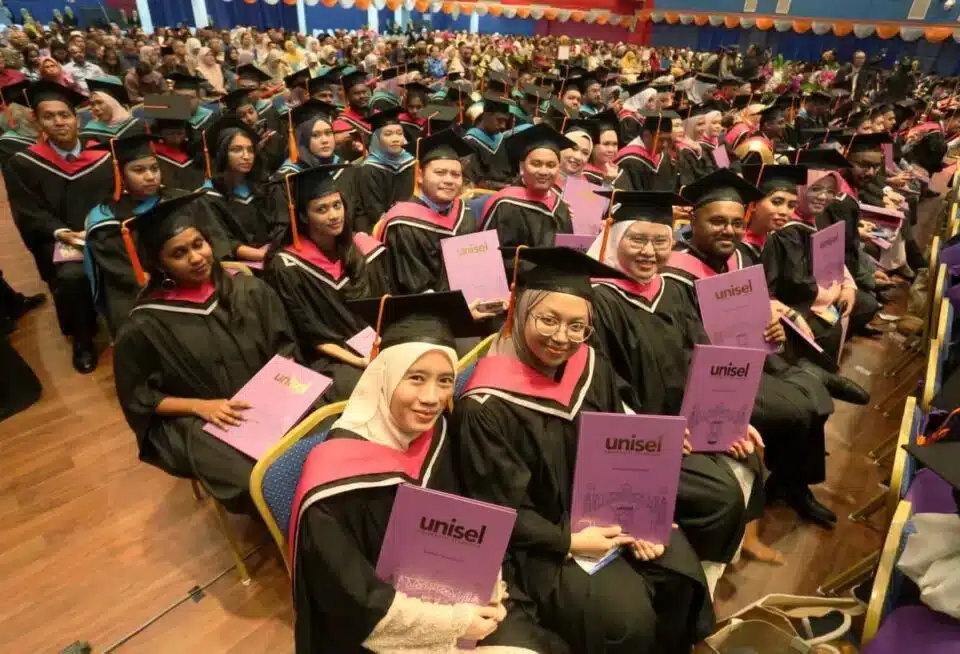SINGAPORE, Nov. 7 — The latest Global Student Survey has found that 78 per cent of Malaysian university students believe their country is a good place to live — higher than the global average of 71 per cent, and up significantly from 65 per cent in 2022.
The survey by Chegg.org offered the most comprehensive up-to-date survey of the lives, hopes, and concerns of undergraduate students across 15 countries as they enter the age of artificial intelligence (AI).
Chegg.org is the non-profit arm of education technology company of California-based Chegg.
The survey also highlights students’ desire for lower tuition fees, with 84 per cent of students surveyed in Malaysia saying they would prefer their university degree to take a shorter amount of time to complete if it was cheaper — the highest among all the countries polled, alongside Kenya also at 84 per cent.
More than two-thirds, or 67 per cent, would rather their university offered the choice of more online learning if it meant paying lower tuition fees — down from 78 per cent in 2022.
The new findings were based on in-depth opinion polling by Yonder Consulting of over 11,000 undergraduate students aged 18 to 21 years across 15 countries, including 508 students in Malaysia.
Questions in this third Chegg.org Global Student Survey covered students’ views on learning in the age of AI, skills and careers, and their health, well-being and social attitudes.
Chegg.org launched its Global Student Survey in 2021, during Covid-19 lockdowns, and has conducted a survey every year since, with the first survey published in February 2021 and the second in April 2022.
The latest survey found that almost half, 49 per cent, of Malaysian students surveyed have used generative AI (GenAI) to help with their studies —higher than the global average at 40 per cent.
While Malaysian students appear to view GenAI as a helpful learning support tool, they still see room for improvement, with 72 per cent of all those surveyed saying they would like the involvement of human expertise in generating answers.
At the same time, among the 49 per cent of Malaysian students who say they have used GenAI for their studies, 65 per cent are concerned about receiving incorrect or inaccurate information, although majority of them (58 per cent) were using GenAI to research assignments or projects.
In terms of usage, 9 per cent of Malaysian students use it more than 10 times a day on average — the highest percentage after India (10 per cent) and Kenya (12 per cent) for this option.
Nearly one-third (32 per cent) say they use it a couple of times a week.
Almost three-quarters (73 per cent) of students surveyed in Malaysia believe that given the availability of free GenAI tools, colleges and universities should change the way they assess students.
Among this cohort, over half, 53 per cent, say there should be better guidance on acceptable use of GenAI in assessments, half, 50 per cent, say there should be more coursework-based assessments [the second highest out of all countries after Spain (65 per cent)], and 43 per cent say there should be more monitored in-person assessments the highest out of all countries.
“Students are also taking stock of how AI could affect their future careers,” said the survey.
While almost a quarter (22 per cent) of Malaysian students polled feel their degree will be less useful, or not useful at all, in an AI-assisted workplace, 41 per cent believe it will be more useful than before.
More than two-thirds, or 69 per cent, of those surveyed said they would like their course curriculum to include training in AI tools relevant to their future career.
— Bernama


